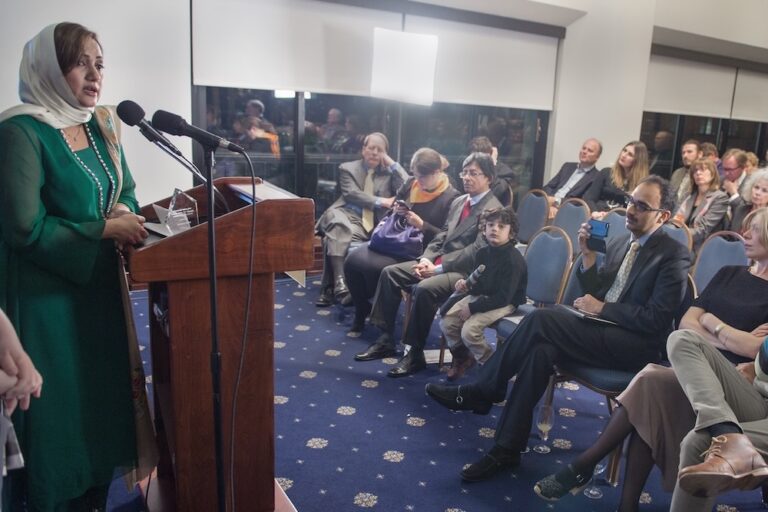Bytes for All, Pakistan welcomes a recent decision by mobile phone manufacturer Blackberry Ltd to end its operations in Pakistan in the face of demands by the government to give it unfettered access to its customers' private encrypted data.
This statement was originally published on content.bytesforall.bk on 14 December 2015.
Bytes for All, Pakistan welcomes a recent decision by mobile phone manufacturer Blackberry Ltd to end its operations in Pakistan in the face of demands by the government to give it unfettered access to its customers’ private encrypted data. The announcement was made by Blackberry CEO Marty Beard on November 30 in which he explained that “the Pakistani government wanted the ability to monitor all BlackBerry Enterprise Service traffic in the country, including every BES e-mail and BES BBM message.”
The open and frank announcement by Blackberry gave Pakistanis an idea of the extents to which our government is going to get unauthorised access to our private data. However, the news that authorities are trying to spy on us comes as no surprise to most Pakistanis for a number of reasons.
First, we already know that the government is doing all it can to get access to our private data by the fact that it has pushed legislation such as the “Fair Trial Act” of 2013 and the upcoming cyber crime bill (“Prevention of Electronic Crimes Bill”) which formalises the procedure for law enforcement agencies to surveil citizens and mandates mobile and Internet service providers to share customer data. Second, we have reason to believe that the government has already acquired intrusive surveillance software such as Finfisher, and has sought to set up a mass surveillance system which would tap the fibre optic cables that carry the bulk of network communication data to, from and through Pakistan.
So the desire and, to some degree, capability of Pakistani authorities to monitor our private information comes as no surprise. In fact, even as far back as 2011, it was clear that the authorities wanted to block Blackberry’s encrypted traffic in Pakistan.
For the average Pakistani mobile and Internet user, Blackberry’s suspension of services will not have a huge impact because, for one, there are not that many Blackberry users in the country any more. And even those who still rely on Blackberry’s services for private encrypted communication will find that there are plenty of alternatives, some of which are arguably more secure). Here we can mention the encrypted messaging app Signal for Android and iOS which is notable because it is free and open source software, meaning that the design blueprints for the app are publicly available and can be audited for security by anyone who understands the code. The end-to-end encryption offered by Signal means that no one other than the sender and recipient can decrypt the messages — even the makers of Signal themselves. Signal is just one of a number of alternatives to Blackberry’s encrypted messaging.
Finally, we should also state that while we welcome Blackberry’s stance towards protecting the privacy of its customers in Pakistan, we also want to encourage it to consider applying the same principled position towards its customers in other countries, such as India, the UAE and Saudi Arabia, where it has reportedly made agreements with law enforcement agencies to share some level of data of its Blackberry Enterprise Service customers.


